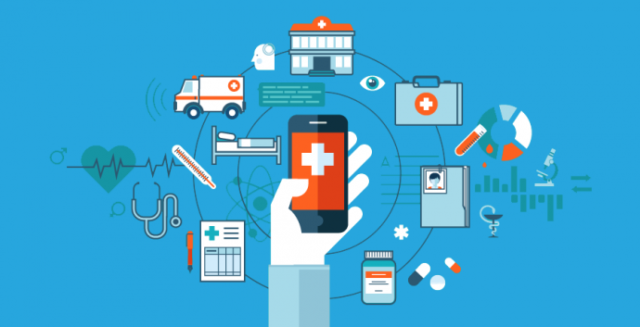iPaulina

Introducing Digital Healthcare
Is this our future?Digital healthcare is the use of technology to help improve health and wellness, ranging from wearable gadgets and mobile apps to robotic carers. The industry has many aims: tracking chronic conditions, reducing disease, lowering the cost of healthcare and tailoring medicine to each individual.
Healthcare today is based on the expected responses of the average patient. However, digital healthcare aims to use precision healthcare, a system that will be based on individual genomic, environmental and lifestyle differences to enable more precise ways to prevent and treat diseases.
An apple watch is an example of digital precision health, as it tracks your heart rate, sleep and many other factors that comprise your health data. It is believed that doctors will soon be able to use this type of technology to catch and therefore treat diseases earlier or help ease symptoms before they really take hold. If digital healthcare does improve an individual’s health, this could lead to fewer doctor visits, taking off some burden from the NHS. In countries without affordable healthcare, these new technologies are also beneficial as they can greatly decrease healthcare costs by reducing the frequency of visits to the physician.
We can thus safely say that if digital healthcare really fulfilled its aims, its effects would be far reaching and massive.
However, these technologies are still far from perfect. For digital healthcare to be as useful as it can be, it needs to reach people of all ages, gender, ethnicity or genetic background, with any income level, or medical condition. Unfortunately, data shows that the majority of users tend to be wealthier, fitter and aged between 20 to 40 years old. This means that the data being collected is not really representing the whole population accurately, so the technology isn’t being used as effectively as it could be.
Moreover, there can still be mistakes with this system, with people being sent unnecessary doctor visits or told they are healthy when they are not. There is also the question of how much information is being shared and how people feel about some of their most personal details being used for research. Much has to be done in order to ensure that no personal health records and data are leaked, and all information is kept safe.
Clearly, there are many measures that must be installed for digital healthcare to operate within the bounds of ethics and the law. One must wonder: is this really our future? Or are we pushing the bounds of imagination for today’s world?
Natalia VI







